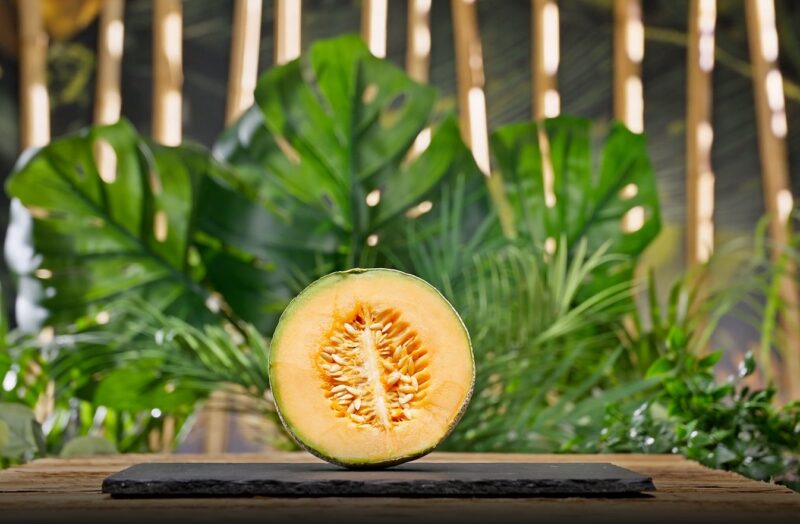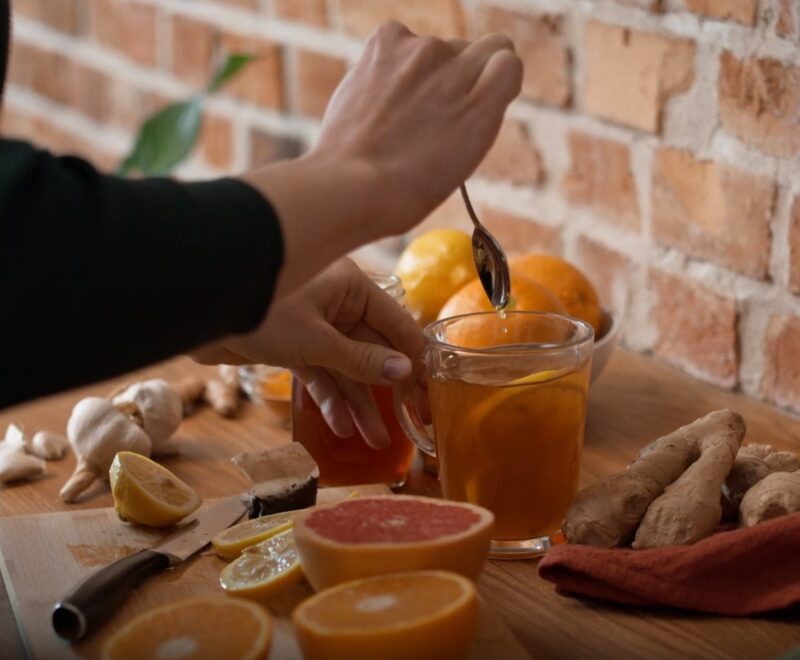While there are many modern methods available, home remedies have been used for centuries and are still popular in many cultures. Some of these solutions can be a great aid if you don’t have typical products at home, and there are no pharmacies nearby.
The Historical Context
The Ancient World’s Approach
Birth control is not a new concept. In ancient times, women across different cultures and civilizations used various methods to prevent unwanted pregnancies. From herbal concoctions to physical barriers, the ancient world had its unique ways of managing reproductive health.
- Egyptian Tales: Ancient Egyptian women used a mixture of honey, acacia leaves, and lint as a form of vaginal suppository. They believed this concoction could prevent sperm from reaching the egg.
- Greek Wisdom: Greek women relied on a plant called Silphium. It was so popular that it was harvested to extinction. They believed consuming its seeds could prevent conception.
The Middle Ages and Beyond
As time progressed, so did the methods of birth control. The Middle Ages saw a mix of superstition and herbal remedies. Some methods were effective, while others were mere myths.
- The Magic of Amulets: Some believed wearing amulets made of certain metals or stones could ward off pregnancy.
- Herbal Infusions: Women drank infusions made from plants like pennyroyal, tansy, and juniper berries, known for their abortifacient properties.
Herbal Remedies

The Power of Neem
Neem, a tree native to India, has been used for centuries for its medicinal properties. Both neem oil and neem leaf extracts have been found to have spermicidal properties, making them a potential natural contraceptive.
- Neem Oil: When used as a vaginal lubricant, neem oil can immobilize sperm within 30 seconds of contact. However, its effectiveness as a standalone birth control method is still under research.
- Neem Tablets: Consuming neem tablets daily can reduce the motility of sperm, decreasing the chances of fertilization.
Still, you must be cautious if you are planning to rely on herbs. According to Rachel Ellis from WebMD:
“Some herbs are touted as ways to avoid pregnancy. But there’s very little research to back up those claims. And the FDA hasn’t approved any of them.”
Queen Anne’s Lace Seeds
Also known as wild carrot, Queen Anne’s Lace has been used as a contraceptive in various cultures. The seeds block progesterone synthesis, disrupting implantation and thus acting as a natural morning-after pill.
- How to Use: Women can chew a teaspoon of seeds within 8 hours of unprotected intercourse and continue for another 7 days.
- Caution: It’s essential to ensure you’re using the right plant, as some look-alikes can be toxic.
Physical Methods

The Papaya Connection
Unripe papaya has been used traditionally in some cultures to prevent pregnancy. It’s believed that regular consumption can lead to temporary sterility in men and can induce an abortion in the early stages of pregnancy for women.
- Frequency: Eating unripe papaya twice a day for 3-4 days can have contraceptive effects.
- Note: While there’s anecdotal evidence, scientific research on this method is limited.
Smart Calendar Method
One of the oldest birth control methods is tracking menstrual cycles. By avoiding intercourse on fertile days, women can reduce the chances of conception.
- Basics: Typically, ovulation occurs in the middle of the menstrual cycle. By abstaining a few days before and after ovulation, conception chances reduce.
- Modern Twist: Today, there are many apps available that help women track their cycles and identify fertile days.
Dietary Influences

The Soy Effect
Soy contains phytoestrogens, which are plant-derived compounds that can mimic the hormone estrogen in the body. There’s a belief that high consumption of soy products can affect fertility in both men and women. Some researches states that it can lead to lower testosterone. When a man is having this problem, chances of getting pregnant will drop down significantly.
- For Men: High soy intake can reduce sperm count. A study found that men who consumed more soy foods had a lower sperm concentration than those who didn’t. In case that a man struggles with this issue and lower testosterone, there are some solutions like changed lifestyle, or supplements like Androxal.
- For Women: While the effects are less clear for women, some believe that soy can interfere with the menstrual cycle and ovulation.
Pineapple and Birth Control
Pineapple, especially when consumed in large quantities in the early stages of pregnancy, is believed to induce miscarriages. The enzyme bromelain in pineapples can soften the cervix, leading to miscarriages.
- Consumption: Eating a large amount of pineapple core where bromelain concentration is highest, especially in the early stages of pregnancy, can be risky.
- Note: While there’s anecdotal evidence, there’s limited scientific research to back this claim.
Lifestyle and Birth Control

Stress and Fertility
It’s well-known that chronic stress can have various negative health impacts, including on reproductive health. High stress levels can lead to hormonal imbalances, affecting ovulation and fertility.
- The Science: Stress increases the production of prolactin and cortisol, which can inhibit ovulation.
- Managing Stress: Practices like yoga, meditation, and regular exercise can help manage stress and potentially improve fertility health.
Weight and Conception
Both being underweight and overweight can influence fertility. Body fat plays a crucial role in producing estrogen, and any imbalance can affect ovulation and fertility.
- Underweight Concerns: Women who are significantly underweight might experience anovulatory cycles (cycles where ovulation doesn’t occur).
- Overweight Concerns: Being overweight can lead to insulin resistance, which can, in turn, lead to anovulation.
Myths and Misconceptions

Douching Post-Intercourse
Some believe that douching after intercourse can help wash away sperm and prevent pregnancy. However, this method is not only ineffective but can also increase the risk of infections.
- Why It Doesn’t Work: Douching can push sperm further up into the uterus, increasing the chances of conception.
- Health Risks: Douching can disrupt the natural balance of bacteria in the vagina, leading to infections.
Jumping Up and Down
An old wives’ tale suggests that jumping up and down after intercourse can prevent sperm from swimming up the cervix. This method is not only ineffective but also comical.
- Reality Check: Sperm are incredibly fast swimmers, and this physical activity won’t deter them.
- Better Alternatives: Instead of relying on myths, it’s essential to seek scientifically-backed birth control methods.
The Future of Natural Birth Control

Innovations and Research
The quest for natural birth control methods that are both effective and safe continues. With advances in science and technology, we might soon see innovations inspired by ancient wisdom.
- Bio-Tech Meets Tradition: Biotechnological companies are exploring plant-based compounds that can act as contraceptives without the side effects associated with synthetic hormones.
- Personalized Approaches: With the rise of personalized medicine, we might see birth control methods tailored to an individual’s genetic makeup and health profile.
Sustainability and Birth Control
As the world becomes more eco-conscious, there’s a growing interest in sustainable birth control methods that don’t harm the environment.
- Eco-Friendly Packaging: Brands are now offering contraceptives in sustainable packaging, reducing plastic waste.
- Natural Methods: Methods like the calendar or fertility awareness method have no environmental footprint, making them appealing to those concerned about the planet.
Balancing Tradition and Modern Medicine

As we explore the vast landscape of home remedies for birth control, it’s essential to tread with sensitivity and respect. While some methods are deeply rooted in cultural practices, others have emerged from necessity or lack of access to modern medicine.
- Respecting Choices: Every individual’s choice regarding birth control is deeply personal. It’s crucial to respect and understand the reasons behind their decisions, whether they stem from cultural beliefs, personal experiences, or economic constraints.
- Informed Decisions: While respecting choices, it’s equally important to ensure that individuals have access to accurate information. This balance ensures that decisions are made based on knowledge rather than misinformation.
FAQs
Are there any side effects associated with using herbal remedies for birth control?
Yes, like all medicinal interventions, herbal remedies can have side effects. Depending on the herb and the individual’s body, reactions can range from mild allergic reactions to more severe health implications. It’s essential to consult with a healthcare professional before trying any herbal remedy for birth control.
How reliable are traditional methods compared to modern contraceptives?
Traditional methods, while rooted in ancient wisdom, may not be as reliable as modern contraceptives. Modern methods like birth control pills, IUDs, and condoms have undergone rigorous testing and have known efficacy rates. On the other hand, the effectiveness of traditional methods can vary and might not be scientifically documented.
Can men also use home remedies for birth control?
While most home remedies for birth control are directed towards women, there are some methods and beliefs centered around reducing male fertility temporarily. However, the effectiveness and safety of such methods for men are not well-researched, and it’s always best to consult with a healthcare professional.
Are there any foods or herbs that can enhance fertility instead of inhibiting it?
Yes, certain foods and herbs are believed to boost fertility. For instance, maca root, red raspberry leaf, and royal jelly are often touted as fertility enhancers. However, it’s essential to approach such claims with caution and seek scientific evidence or professional advice before consumption.
Can lifestyle factors, apart from home remedies, influence birth control effectiveness?
Factors like stress, diet, weight, and overall health can influence fertility and the effectiveness of birth control methods. For instance, being significantly underweight or overweight can impact hormonal balance and ovulation, affecting fertility. It’s always a good idea to maintain a healthy lifestyle for optimal reproductive health.
Last Words
Home remedies for birth control are fascinating, offering a glimpse into how our ancestors approached reproductive health. While some methods have a basis in science, others are rooted in myths and misconceptions. In the modern age, with a plethora of birth control options available, it’s crucial to always make informed decisions.
